Train to Sustain (T2S) is an Erasmus+ funded project led by Atlantic Technological University (Ireland) in collaboration with IDEA (Poland), CIA Toscana (Italy), and BCN (Lithuania). The project is redefining how education can drive meaningful change across Europe’s agri-food sector addressing climate change, food security, and workforce transformation. With sustainability embedded at the very core, the project brings the consortium’s shared vision to life: to ensure that entrepreneurial education not only responds to the needs of today’s learners and labour markets, but also protects and strengthens Europe’s food systems for generations to come. Food is the foundation of life, without it, society cannot thrive. Recognising this, the consortium treats developing entrepreneurship in the agri-food sector not just as a focus area, but as a vital responsibility. It is our privilege as entrepreneurial educators to contribute to a sector that so profoundly shapes the health, resilience, and future of society. Through the creation of digital tools, innovative research, and inclusive engagement, the project equips educators with the knowledge and resources to embed food sustainability at the heart of agri-food entrepreneurship curricula. A unique element of the T2S project is its commitment to bring all players of the agri-food ecosystem together, educators, students, industry, entrepreneurs, researchers, and policymakers to have open, honest conversations about how we can collectively address the green and digital skills gap. These collaborative efforts ensure the project’s outcomes are practical, future-focused, and deeply rooted in the realities of the sector. By aligning with the Sustainable Development Goals and fostering shared ownership of sustainability in entrepreneurial education, the project is not only shaping better learning environments but also helping secure Europe’s food future. In doing so, it sets a powerful example of how education can serve as a force for systemic, lasting change.

4th PLACE
EU Project of the Year Award
Train to Sustain, Dr Lisa Ryan and Maria McDonagh, Atlantic Technological University, Galway,Ireland
4th PLACE EU Project of the Year Award
Atlantic Technological University, Galway (ATU, Galway), Ireland - Ireland (Republic)
"Train to Sustain: Empowering Educators, Shaping Sustainable Futures"

Engage on social media
(Official Train to Sustain project Instagram account)
(Dr Lisa Ryan LinkedIn account)
(Maria McDonagh LinkedIn account)
Have a say and vote for this entry to win the People's Choice Award!
500 points per vote
Provide your email address and click on "vote". You will then receive an email that enables you to verify your vote by clicking on a link.
1500 points for each share/re-post; 500 points for each like
Support this entry by engaging with it on Social Media.
Summary
Key People
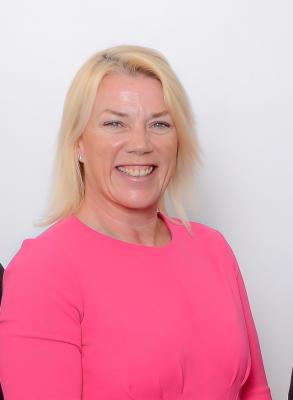
Dr Lisa Ryan
Head of School of Science and Computing
Department of Sport, Exercise and Nutrition ,
Atlantic Technological University, Galway (ATU, Galway)

Maria McDonagh
Research Project Manager
Department of Sport, Exercise and Nutrition ,
Atlantic Technological University, Galway (ATU, Galway)
Acknowledgements
The Train to Sustain project was led by the project team from Atlantic Technological University (ATU), Galway, Ireland working in partnership with IDEA (Poland), CIA Toscana (Italy), and BCN (Lithuania).
This project was funded with support from the European Commission as part of the Erasmus+ KA2 fund, project number 2023-1-IE01-KA220-VET-000156916.
Images
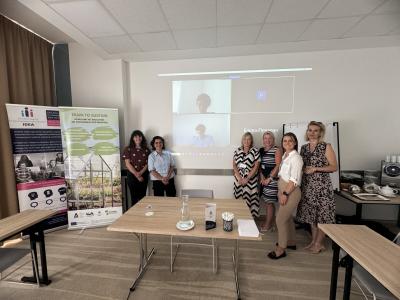
Train to Sustain Partner Meeting, Warsaw, Poland
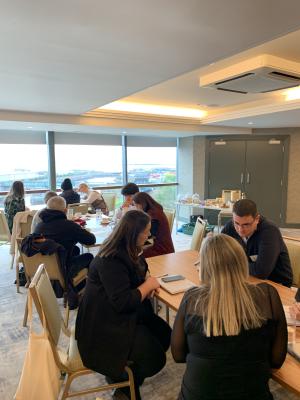
Train to Sustain Think Tank with stakeholders, Ireland
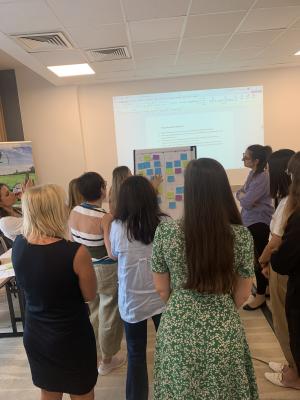
Sharing ideas at a teaching and learning mobility event in Warsaw, Poland
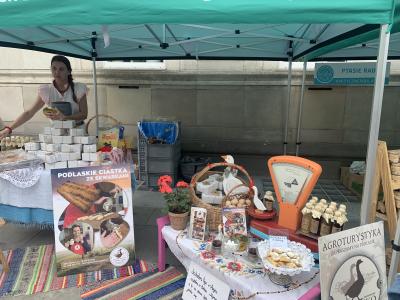
Meeting local food entrepreneurs in Warsaw, Poland
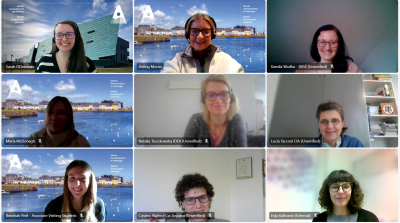
Online project team meeting
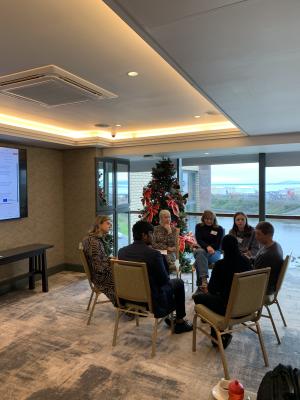
Train to Sustain Think Tank with stakeholders
IMPACT STORY
Impacting lifes
The Train to Sustain project is creating meaningful impact by transforming how sustainability and entrepreneurship are embedded in agri-food education across Europe. Through an innovative, research-driven approach, the project empowers educators to deliver green, digital, and sustainability-focused training directly responding to labour market needs and accelerating progress toward the EU’s climate goals and the UN Sustainable Development Agenda.
At the heart of the project’s impact is its evidence-based methodology, shaped by input from over 150 educators across four EU countries. This data has informed the development of impactful, user-friendly tools such as a Training Guide and interactive MOOC, which are already strengthening educator capacity and supporting curriculum innovation across partner countries. The acceptance of project research for presentation at the prestigious IUNS 2025 conference signals growing global recognition and amplifies the project’s international impact.
Strong cross-sector collaboration has further enhanced the project’s impact, uniting academia, industry, and policy stakeholders. Over 800 participants have engaged in national Think Tanks, project dissemination events and research activities, co-creating content and promoting behavioural change.
By making sustainability education more accessible, practical, and aligned with real-world needs, Train to Sustain is delivering lasting impact at institutional, national, and international levels advancing climate resilience and shaping a more sustainable agri-food future.
LEARNINGS
Lessons learned
The Train to Sustain project offers valuable leadership insights into driving systemic change through education. A key learning is the power of aligning educational innovation with real-world needs in this case, the urgent demand for green, digital, and sustainability-focused skills in the agri-food sector. By embedding evidence-based design, cross-sector collaboration, and inclusive stakeholder engagement at every stage, the project sets a new standard for impactful, future-facing education.
Leadership in this context means creating space for co-creation, ensuring that educators, industry experts, and learners all have a voice in shaping the future of the agri-food sector. It also involves fostering a culture of continuous learning and adaptability responding to evolving challenges with agility and purpose. The project’s success demonstrates that innovation is most effective when it is informed by rigorous research and grounded in diverse perspectives, including those from regions facing acute sustainability pressures.
Another critical lesson is the importance of international collaboration. Working across borders and disciplines amplifies reach, deepens relevance, and builds lasting partnerships that extend impact well beyond project timelines. The project partners are continually strengthening their collaboration, actively co-developing future project concepts while also broadening their networks by leveraging one another’s contacts and databases.
For leaders seeking to transform education, Train to Sustain highlights the value of visionary yet practical leadership, one that is inclusive, data-informed, and able to challenge conventional models in pursuit of long-term, global impact.
FUTURE PLANS
What's coming?
The Atlantic Technological University (ATU) Galway’s commitment to integrating sustainability in education is firmly embedded in its strategic plan. ATU supports and advances research that addresses the UN Sustainable Development Goals and is a lead partner in several national and international sustainability-focused initiatives. As a member of the EU Green Alliance, ATU collaborates across Europe to develop innovative solutions for climate action through education, further reinforcing its leadership in this area. It supports a diverse student community and places high value on research-informed teaching and learning making projects like Train to Sustain particularly impactful and relevant.
Building on the success of Train to Sustain, the consortium is committed to expanding its impact through a series of ambitious future initiatives. Recognising the urgency of global sustainability challenges and the evolving demands of the agri-food labour market, future plans will focus on scaling and adapting the project’s model beyond Europe. By continuing to align with EU and UN priorities, the consortium is strategically positioned to lead future projects that drive systemic, international impact in agri-food education and beyond.
The ATU project team, in collaboration with European partners, has secured funding for two follow-on projects that examine the intersection of entrepreneurship, climate change, and food security positioning education as a powerful driver of job creation and resilience within the agri-food sector. Both projects commenced in late 2024 and are set to deliver impactful outputs that will support the development of the food sector while fostering social innovation.

